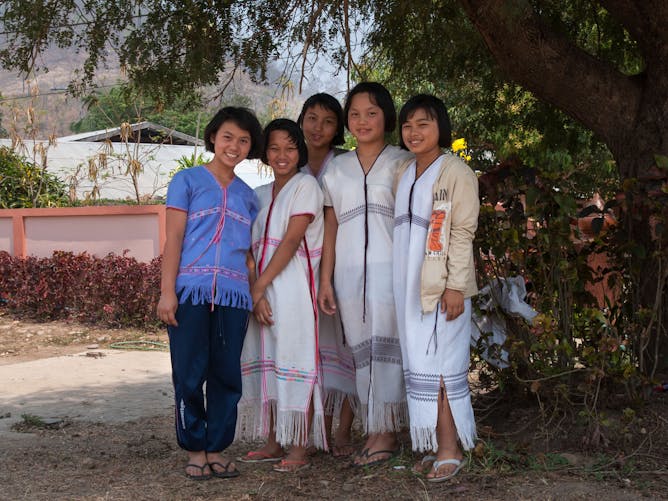|
|
|
Editor's note
|
|
When immigrants move to a new country, they eat different foods and consume unfamiliar medicines. Computational biologists Pajau Vangay and Dan Knights discovered that soon after Asian immigrants settle in the U.S., the microbes that live in their digestive tracts are replaced by Western bacteria. These shifts in the microbial community – the microbiome – may explain the rise in chronic diseases, including obesity, in these new
immigrants.
On Wednesday, Turkish prosecutors described how Saudi journalist Jamal Khashoggi was strangled and dismembered in the Saudi Consulate in Istanbul. To Arab media expert Sahar Mohamed Khamis of the University of Maryland, a significant part of the murder is that the media is finally paying attention to the dangers faced by Saudis, Egyptians and Syrians who call out oppressive regimes in the Middle East – many of whom remain vulnerable to
kidnappings and murder.
According to a new study, the world’s oceans have absorbed more excess heat from climate change than experts previously thought. Colorado State University atmospheric scientist Scott Denning explains why he thinks the authors’ surprising results are credible and why drastic cuts in carbon emissions are urgently needed.
|
Bijal Trivedi
Science and Technology Editor
|

|
|
Top stories
|

S'gaw Karen girls of Khun Yuam District, Mae Hong Son Province, Thailand.
Takeaway
Pajau Vangay, University of Minnesota; Dan Knights, University of Minnesota
When immigrants come to the US, it isn't just the people who assimilate. The microbes in their gut also become Westernized after living here. This may predispose them to diseases like obesity.
|

Candles, lit by activists, protesting the killing of Saudi journalist Jamal Khashoggi, are placed outside Saudi Arabia’s consulate, in Istanbul.
AP Photo/Lefteris Pitarakis
Sahar Khamis, University of Maryland
Will it embolden or neuter the Arab world's autocratic regimes?
|

The ocean absorbs about 90 percent of the excess heat produced as climate change warms the earth.
Image Catalog
Scott Denning, Colorado State University
According to a new study, the oceans have absorbed more heat from climate change than previously thought. This could mean the Earth will warm even faster in the future than scientists have predicted.
|
Science + Technology
|
-
Paola Odriozola, Yale University; Dylan Gee, Yale University
Almost a third of American adolescents have anxiety disorders. Researchers in developmental neuroscience are figuring out that how the brain matures over time may be part of the reason why.
-
Scott Shackelford, Indiana University
The very first cyberattack clogged up the nascent internet, halting digital communications. Now much bigger, the internet is still largely open to – and suffering regularly from – similar attacks.
|
|
Politics + Society
|
-
Christopher P. Scheitle, West Virginia University; Jeffery T. Ulmer, Pennsylvania State University
A national survey of over 1,300 congregations found that religious leaders struggle to balance security concerns with carrying out a mission to be open to the communities they serve.
-
Richard Briffault, Columbia University
Congressional midterm election spending will likely hit a record $5 billion. But the spending masks the main problem with US campaign financing: who gives the money and what they may get in return.
|
|
Environment + Energy
|
-
Matthew Wallenstein, Colorado State University; Cynthia Kallenbach, McGill University; Peter Olayemi, Colorado State University
Leftover lactose from cheese production shows early promise as a treatment that can help soils retain water and nutrients, making them more resistant to drought.
|
|
|
|
|
|
From our International Editions
|
-
James M. Skidmore, University of Waterloo
Germany's long-time Angela Merkel era is coming to an end. But is it the end of one person’s dominance of the political scene, or does it forebode more fundamental changes to German society?
-
Justice Tankebe, University of Cambridge
Poor supervision, poor training, and unfair treatment of lower-ranked officers make misconduct more likely to happen among Ghana's police force.
-
Iwan Morus, Aberystwyth University
Frankenstein might look like fantasy to modern eyes, but to its author and original readers there was nothing fantastic about it.
|
|
Today’s chart
|
-

 |
Dr. Patricia Schnabel Ruppert
Columbia University Medical Center
|
| | | |
| |
|
|
|
|
|
|
|